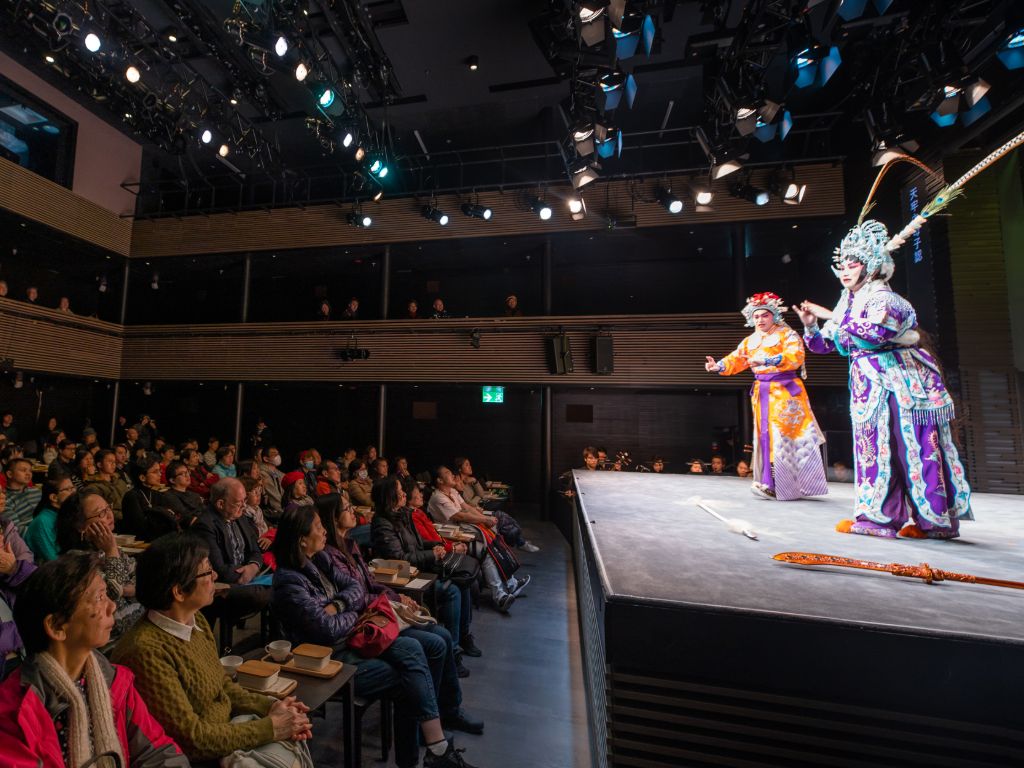
Very few cities can lay claim to having graced the screen with stars from every corner of the globe, from Hollywood’s Golden Age to today, but Hong Kong can. Since the advent of cinema, the ever-changing urban landscape has captivated filmmakers from within the city and beyond, allowing the metropolis to morph from exotic temptress to action hero to futuristic vision with each movie it appears in.
The outlook is so different from the rest of the world — especially when you think about other big cities.
For Vivienne Chow, a journalist and culture critic who contributes to the South China Morning Post, BBC and Variety, among other publications, part of what makes Hong Kong so appealing to directors and cinematographers is its appearance. “The outlook is so different from the rest of the world — especially when you think about other big cities,” she says. “The idea of having skyscrapers as densely planted in one place, I can’t think of anywhere else like it, even New York.”

Chow’s relationship with film is entwined with her hometown. “My parents took me to the cinema to watch movies from a very young age. I’ve always been an addict of television, films and pop culture,” she says. International audiences, however, were first introduced to and enchanted by the city through the 1960 production The World of Suzie Wong, and by the inimitable martial artist Bruce Lee, whose popularity endures to this day.

Copyright © 2010 Fortune Star Media Limited All Rights Reserved
Of course, the city is much transformed from the world of Suzie Wong, but not beyond recognition. Progress has reshaped the waterfront and much of the architecture has made way for glass and steel structures, but sampans still bob in Aberdeen Harbour and timeless tong lau tenements can be found wedged between contemporary buildings, the intoxicating allure of old Hong Kong all the more pronounced for its proximity to the modern metropolis.

Copyright © 2010 Fortune Star Media Limited All Rights Reserved
In the decades since, action movie auteur John Woo, the godfather of gangster films Johnnie To and the peerless Wong Kar-wai, whose atmospheric, sensuous and saturated scenes have seduced film audiences across the globe, have focused their lenses on other sides of Hong Kong, exhibiting the many facets of the city. Among Chow’s favourite films are Stephen Chow’s comedies from the 1990s. “A lot of the biggest stars at the time appeared in those comedies, like Leslie Cheung, even Maggie Cheung, Tommy Leung,” she says. “They are a very interesting mirror of Hong Kong in those days.”

Of course, the city is much transformed from the world of Suzie Wong, but not beyond recognition. Progress has reshaped the waterfront and much of the architecture has made way for glass and steel structures, but sampans still bob in Aberdeen Harbour and timeless tong lau can be found wedged between contemporary buildings, the intoxicating allure of old Hong Kong all the more pronounced for its proximity to the modern metropolis.
It’s the contrast and extremeness that fascinates people, it’s a city that’s constantly moving.
Chow believes it is these contrasts that continue to attract filmmakers to Hong Kong’s shores, highlighting how both the anime and live-action versions of Ghost in the Shell, released in 1995 and 2017 respectively, were set in the city. “Neither version specified that it was Hong Kong, but it’s the image of a futuristic city,” she says. “It’s not just about the neon signs, the glass facades, the glossiness of the city. It’s also how everything is crammed together. There is a mixture of very sleek and futuristic looking buildings but at the same time there are a lot of people around. So it’s the contrast and extremeness that fascinates people, it’s a city that’s constantly moving.”

However, Chow believes there is a difference in how Hong Kong is represented by directors who are more familiar with the city. “I think international filmmakers like the setting, they like the aesthetics, they like the chaos,” she says. “But then Hong Kong filmmakers are different, they tell Hong Kong stories. To them, Hong Kong is not just a set, it’s part of the story, it’s a character.”
And it is this character, this ever-evolving, evocative urban jungle that Chow admires: “It’s fascinating, even today when I look at Hong Kong Island from the other side of Victoria Harbour, I’m still mesmerised by it.”
Hong Kong is not just a set, it’s part of the story, it’s a character.

Movie buffs looking to learn more about Hong Kong and its film industry should beeline to the excellent Hong Kong Film Archive
{{title}} Address {{address}} Website {{website}} More info in Sai Wan Ho to browse a rich repository of movie-related materials. Now in its fifth decade, the annual Hong Kong International Film Festival (March–April) showcases shorts, feature films and documentaries by both local and global filmmakers, culminating in the star-studded awards event. Serious aficionados might also want to check out the associated Entertainment Expo Hong Kong. One of Hong Kong’s top attractions, the Avenue of Stars on Tsim Sha Tsui Promenade pays tribute to the city’s movie stars with impressions of their handprints and statues.
Information in this article is subject to change without advance notice. Please contact the relevant product or service providers for enquiries.
The Hong Kong Tourism Board disclaims any liability as to the quality or fitness for purpose of third party products and services; and makes no representation or warranty as to the accuracy, adequacy or reliability of any information contained herein.








 Live Chat
Live Chat









